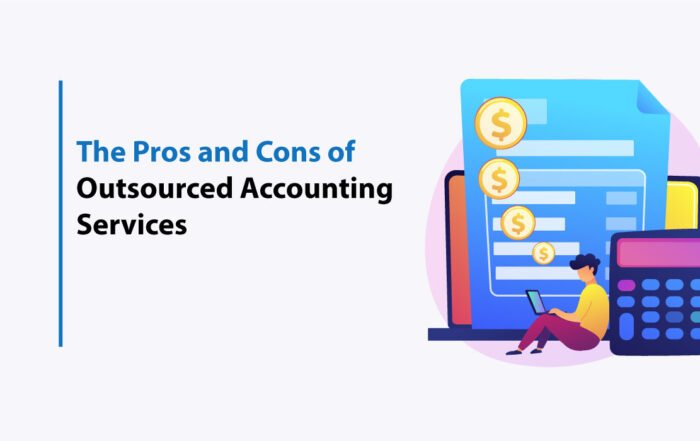In the world of finance, understanding the roles and responsibilities of a CFO vs accountant is crucial for businesses looking to optimize their financial management. Both are important when it comes to handling the financial state of an organization, but the role and tasks of the holder of these positions are quite different, as are the skills they require.
The main difference between what’s a CFO and an accountant will be explained in this article in order to provide the reader with more insights into their respective roles and their cooperation in a company’s financial management.
What is a CFO?
CFO stands for Chief Financial Officer, which refers to the high-ranking officer of the firm that undertakes managerial duties focused on the management of the financial processes within the company. As it is seen from the title, part of the CFO’s primary tasks involves supplying the firm with a general financial course of action in addition to the assessment of its strengths and weaknesses and suggestions on relevant actions. They are members of the company’s strategic management team and they are immediately confronted with the picture of the strategic financial direction of the company.
Key Responsibilities of a CFO:
- Strategic Financial Planning: Implementing and creating policies and schedules that are related to the financial aspects in accomplishing the organizational goals.
- Financial Reporting and Analysis: Along with it it is supervising the working process of preparing the statements, analyzing the provided financial information, and giving recommendations.
- Risk Management: This action entails the act of grouping financial risks and finding out how the risks may be contained.
- Capital Management: Supervising the firm’s financial capital that comprises of; loans and share.
What is an Accountant?
An accountant, on the other hand, is a worker who is responsible for accounting work concerning document preparation, financial statement examination, and accounting rules and regulations adherence. Accountants are essential organizational figures for handling a company’s and day-to-day, maintaining accurate organizational records. They sometimes participate in activities such as recording, compiling, summarizing and presenting financial accounts and statements.
Key Responsibilities of an Accountant:
- Bookkeeping: This can involve keeping records of all the financial transactions that take place in a business, processing and storing of financial data efficiently.
- Financial Reporting: Other tasks include the development of other financial reports including the income statements, the balance sheets and the cash flow statements.
- Tax Compliance: Lobbying and adhering to tax legislations and regulations as well as completing filing of taxes for the company.
- Auditing: Internal auditing aimed at checking accuracy in documentation as well as checking compliance to the financial laws.
CFO vs. Accountant: Key Differences
While both CFO vs accountant are essential to a company’s financial health, their roles and responsibilities differ significantly. Here are some of the key differences between a CFO and an accountant:
1. Scope of Responsibilities
CFO:
- Strategic Role: CFO accounting responsibilities entail suggesting and implementing organic strategic plans in an organization. The main responsibilities are related to this field as they concentrate on the strategic management of resources with the fiscal strategic objectives, long-term strategy in finance, management of the financial risks, and decision-making in investment.
- Leadership Position: Some of the major responsibilities of the CFOs include; The CFOs as members of the executive team, they need to lead and direct the financial management of the company. It can be a general practice for them to team up with other executive officers in management, particularly strategists, to chart the direction of businesses.
Accountant:
- Operational Role: Their major function is on the managerial operations of the company. Some of their key roles are used in recording keeping, preparing of accounts and financial statements, and the legal requirements of accounting.
- Detail-Oriented: Thus, cfo accountant adhere strictly to details and ensure that all the books of accounts are well updated. They perform particular functions like preparing account statements and filing tax.
2. Decision-Making
CFO:
- Strategic Decisions: CFOs are actively engaged in the processes of strategic management of financial outcomes of the enterprise’s activity, which determine its further development. Decision supporters assess financial information and give recommendations that higher officials can use.
- Resource Allocation: CFOs are the ones who choose how the resources of the company shall be used especially on capital investments and sources of finance.
Accountant:
- Tactical Decisions: The strategic decisions of an organization are on the part of the accountants in their reporting and compliance decisions. They check the financial documents of the company so that the organization is in compliance with generally accepted accounting principles.
- Support Role: CFOs and other executives rely on the financial data and reports which are prepared by the CFO accountant.
3. Interaction with Stakeholders
CFO:
- Executive Team: CFOs are responsible for serving under the chief executive officer and other top managers to establish and enact the company’s financial vision. They give financial information and advice for the resolution of business related issues.
- Investors and Board of Directors: CFOs are normally involved in issuing financial reports to the investors, analysts and board of directors on the performance of the company and its planned future actions.
Accountant:
- Internal Teams: This kind of relationship arises between the cfo accountant and the various organizational departments to facilitate accountability and compliance. The engage with other organizational units like the finance department, operation unit and human resource unit.
- Regulatory Agencies: They have the responsibility of making sure that all the accounting operations of the firm are conducted in compliance with the set accounting standards and laws. They may communicate with the legal bodies to resolve some compliance matters.
4. Skill Set and Education
CFO:
- Advanced Education: A CFO should have a minimum of an MBA or a Master’s in Finance, but an increased number of CFOs are acquiring those degrees. They are always equipped with knowledge of financial and managerial accountancy, strategic planning and control of risks.
- Leadership Skills: CFOs are usually well endowed with leadership skills and communication skills in order to be able to steer the operations of the finance department and also relay information from the company’s executive officers.
Accountant:
- Accounting Certifications: Some of the common CFO accounting certifications that are held by the accountants include CPA which stands for Certified Public Accountant or CMA which stands for Certified Management Accountant. They possess good accounting knowledge in terms of principles and proper practices to be followed.
- Detail-Oriented Skills: Users conducting auditing are careful, and they exercise extensive analytical skills in their work. They maintain integrity of the organization’s financial reports and demand adherence to the laid down rules.
The Symbiotic Relationship between CFO vs Accountants
Though the responsibilities of CFO vs accountant are different and differ to a certain extent, they complement each other and serve the purpose of managing and improving the company’s financial health. CFOs rely on accountants for correct information in the form of data and reports that are necessary to institute decisions. Consequently, CFOs offer leadership on the finance team with an apparent goal of creating and managing a successful business that will reap financial rewards in the future.
How Lints Advisors Can Help
At Lints Advisors, we appreciate the fact that CFOs and accountants are among the most significant companies’ assets. We have dedicated specialists who have been in the field of accounting and finance for many years; Whatever type of service you may require whether it is strategic financial planning, reporting or compliance, Lints Advisors is the right place to be.
In conclusion, it is clear that the positions of CFO vs accountant are similar in that they are both vital components of an organization’s financial management, however, the roles of these two employees are rather unique, ensuring that all aspects of the business are covered. Thus, it might be helpful for businesses to understand core distinctions between these positions so that the organization could find ways to strategically strengthen its financial performance.
7 Ways a CFO Can Improve Cash Flow Management
Cash flow management is essential for the survival and growth of any business. Proper cash flow involves the ability to pay the dues, the capacity to reinvestment, and the overall sound health of the firm. [...]
The Pros and Cons of Outsourced Accounting Services
In today’s business world, financial management plays a crucial role in determining the success of any organization. Businesses, from startups to established companies, often face the challenge of managing their finances efficiently. Accounting services are [...]
Top Tax Filing Mistakes—and How to Avoid Them
Tax season can be a stressful time for many individuals and businesses. With complex rules and regulations, it's easy to make mistakes that could cost you money or even lead to legal troubles. This blog [...]





